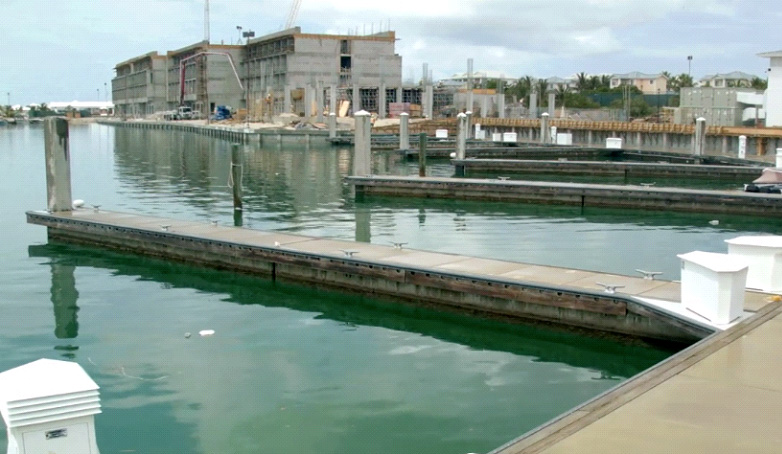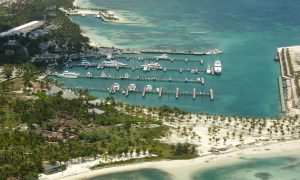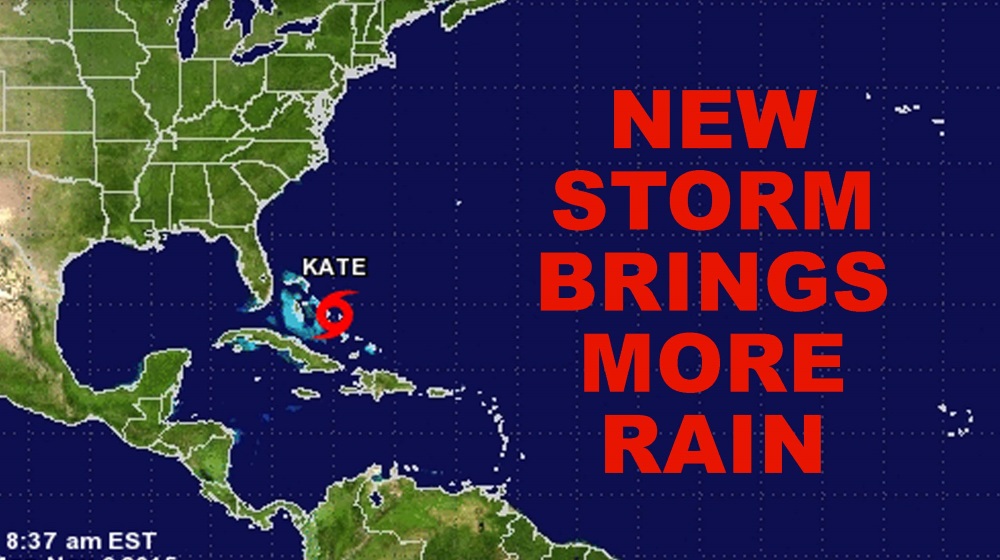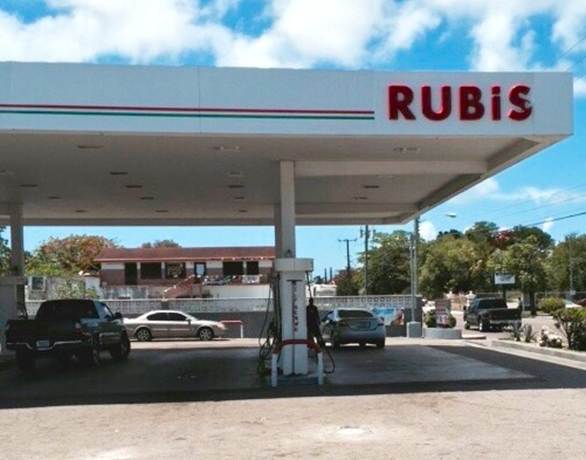A group of international conservation experts has expressed serious concern over the environmental impact of ongoing resort construction on and around the island of Bimini.
The experts, hosted on a tour of Bimini by fast-growing social and environmental advocacy group Save The Bays (STB), said they fear the work may destroy some of the most significant coral reefs in the region and put the island’s traditional industries at risk (see video at SaveTheBays Bahamas youtube site: http://bit.ly/1nNEXKF).
“The Bahamas are some of the most beautiful and wonderful places in the world,” said Marydele O’Donnely, director of international policy for the Sea Turtle Conservancy (STC). “I’ve traveled extensively and I have been absolutely amazed by how the habitat looks here.
“But when I see developments like what is happening in North Bimini I am not only alarmed and concerned, but really saddened. Things have happened here that shouldn’t have happened.
“You can have development but you need to do it properly, and it hasn’t been done properly.”
Archie Carr III, also an STC director, called what he saw in Bimini “quite depressing” – particularly the impact of a massive seafloor dredging operation undertaken to make way for a 1,000 foot pier and cruise ship terminal, right at the heart of Bimini’s most valuable reefs and dive sites.
Carr said the operation resulted in “enormous siltation”, which locals say continues to blanket the surrounding sea floor and suffocate struggling marine life.
Many of the visitors were senior members of the global Waterkeeper Alliance, a leading NGO that coordinates more than 200 stewards of the marine environment, or Waterkeepers, who monitor and help safeguard rivers, bays, lakes and coastal areas around the world.
Noting the importance of Bimini marine environment, both ecologically and in economic terms, Rachel Silverstein, the Waterkeeper for Biscayne Bay, Florida said: “The development that’s going on here is threatening the livelihood of Bahamians who have businesses here that support the tourism industry.”
The developer, Resorts World Bimini, owned by Malaysian conglomerate Genting, has claimed its presence will boost the local economy, but Biminites have grown increasingly concerned that the property will end up monopolizing the tourism business.
One said: “They are now advertising their ‘six restaurants and bars and world class casino’, as well as a variety of water sports, a beach club and restaurant and a craft market, all within their walls.
“At what point are the day guests supposed to contribute to the local economy in the six hours they spend on the island?”
Alex Matthiessen, former Hudson Bay Waterkeeper, now CEO of the Blue Marble Project, concurred with this assessment and noted that the concern runs even deeper.
“No one, even we environmentalists or the Biminites here, are against development, we’re ok with development. The issue is local Biminites who have been making a healthy living off the natural resources here for many generations are being violated, when this kind of development happens.”
Meanwhile, local efforts to bring preserve Bimini’s marine habitat and traditional local economy took a significant blow recently when a court ruled that STB affiliate Bimini Blue Coalition had to pay more than $300,000 before their legal challenge of the development could be heard by a judge.
Despite battling tirelessly for many months, the grassroots coalition was forced to admit defeat, with attorney and STB legal director Fred Smith, QC, lamenting the fact that conservationists had been “priced out of justice”
Smith said it should be very troubling to all Bahamians when citizens with no personal axe to grind, who are merely seeking to defend the public interest, are denied their day in court due to their financial stature.
However, concerned citizens have vowed to continue closely monitoring developments in Bimini, particularly with an eye to blocking the plan to fill in North Bimini’s mangrove swamp and transform it into a golf course.
This same area was listed as the highest-priority site in the Bahamas for a proposed Marine Protected Area in the year 2000 by the Government of The Bahamas in recognition of its ecological and economic value of its habitat.
Fourteen years later, the North Bimini Marine Reserve is still not a reality.
During a recent visit to Bimini, Minister Alfred Gray advised Biminites to learn more about the trade of turf maintenance, spurring concerns that Resorts World was going to pursue filling in north Bimini’s mangroves and turning what was to become a marine protected area into a golf course.
“This crucial area is a nursery for an abundance of marine species which are significant for the fishing industry not just in Bimini, but many of the surrounding islands as well,” Smith said. “We cannot allow that to happen.”
To learn more about the conservationists’ tour, and the ongoing efforts to protect the environment and traditional way of life in The Bahamas, visit: https://www.youtube.com/user/ProtectCliftonBay.


 Caribbean News1 week ago
Caribbean News1 week ago
 Caribbean News7 days ago
Caribbean News7 days ago
 Caribbean News1 week ago
Caribbean News1 week ago
 Caribbean News1 week ago
Caribbean News1 week ago
 Bahamas News7 days ago
Bahamas News7 days ago
 News7 days ago
News7 days ago
 Bahamas News1 week ago
Bahamas News1 week ago
 News7 days ago
News7 days ago



















